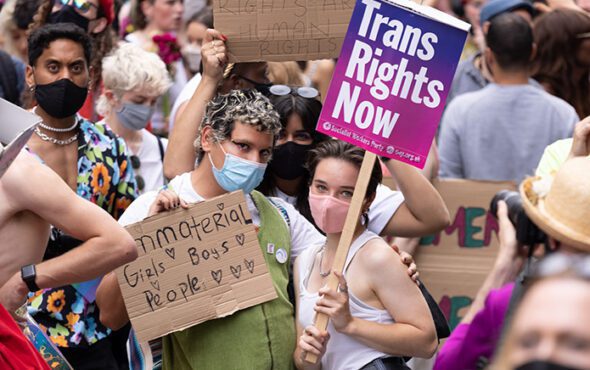
Transgender and non-binary people in the UK face discrimination in all aspects of their day to day life, a new study suggests.
Published on 29 September, TransActual UK’s ‘Trans lives survey 2021: Enduring the UK’s hostile environment’ report aims to highlight the reality of living as a trans and/or non-binary person in the UK.
It was found that a shocking 98% of transgender people do not think NHS transition related care is completely adequate.
In addition, almost half (45%) feel their GP does not have a good understanding of their needs as a trans person, a figure that rises to 55% for non-binary people.
This is something that was found to have a significant impact on respondents, with 57% of trans people saying they had avoided their GP when unwell due to a lack of understanding from them, as well as fear of discrimination.
Approximately one in seven of those surveyed said they had been refused care or treatment by a GP because of their trans status at least once.
This discrimination stretched to employment, with 63% of participants reporting a transphobic encounter when looking for work.
Accessing goods or services saw similar findings, with 72% saying they experienced this in this realm.
When using public transport, discrimination was found to be rife as 67% of trans women, 63% of non-binary people, and 60% of trans men have experienced it in this setting.
A staggering seven in 10 say that transphobia printed in the media has had an impact on their mental health.
“These findings are shocking but in no way unexpected,” Chay Brown, director at TransActual, said. “They merely put figures to a perilous situation that almost every trans person in the UK is well aware of. Transphobia feels unescapable, whether we’re at home, at work or when we go to the doctor’s.”
The report is based on the TransActual Community Voice Survey 2021, an online survey of trans adults in the UK that was carried out between January and February 2021.
According to TransActual UK, there were 702 responses to the survey, however five responses were ineligible, meaning the report relates to the 697 eligible respondents.
In January 2021 we asked trans people across the UK to tell us about their lives. The results are in and today we're proud to present the Trans Lives Survey 2021 report.
There aren't any surprises but the results are shocking.
Read here: https://t.co/UyiP64G60d#TransLives pic.twitter.com/N8YKtroMxK
— Trans Actual (@TransActualUK) September 29, 2021



